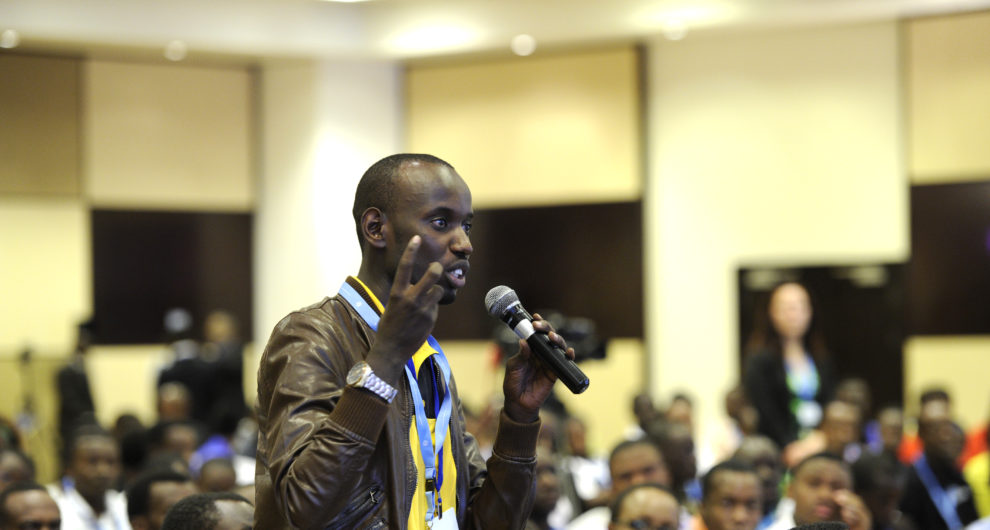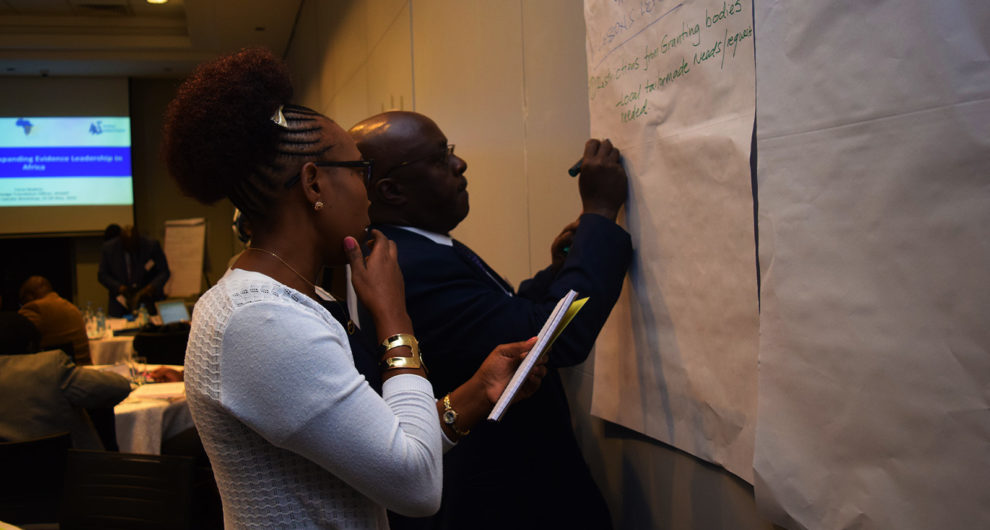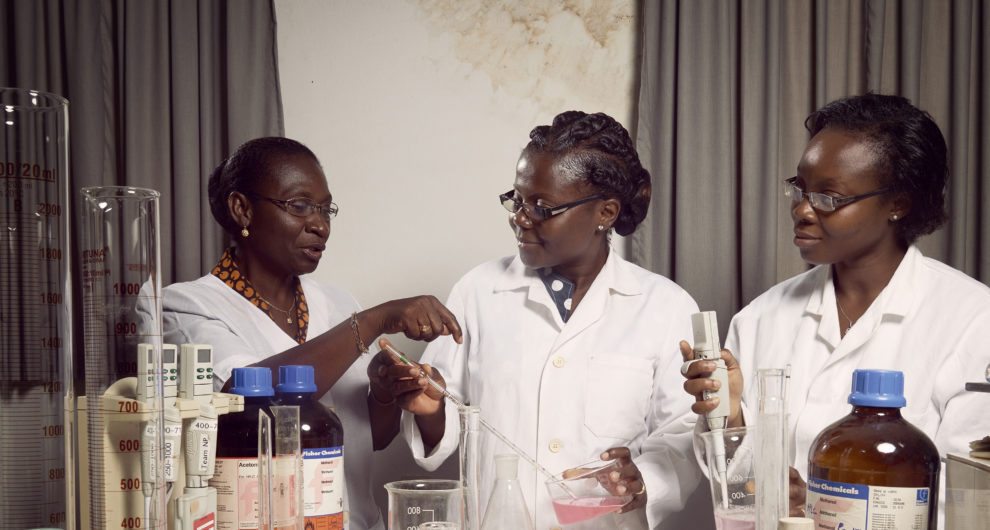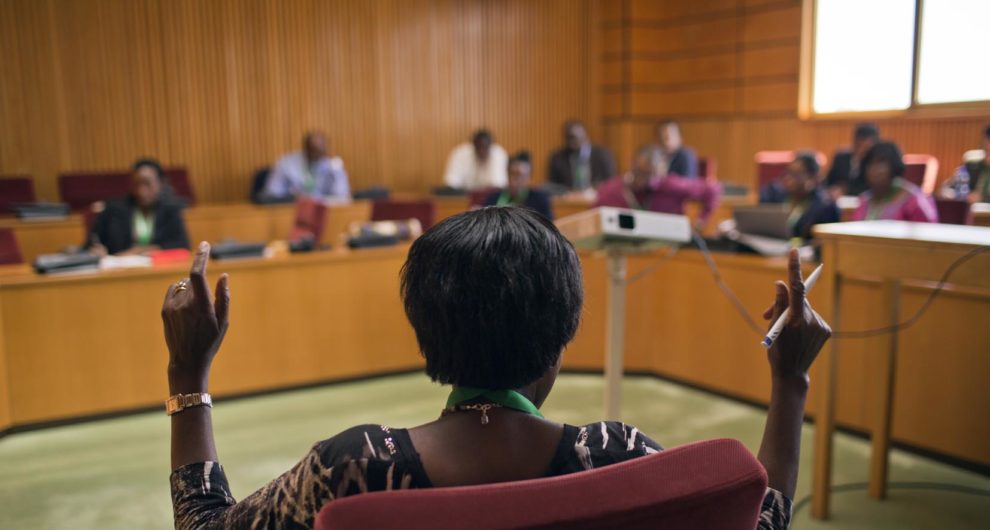The Evidence Leaders in Africa




The Evidence Leaders in Africa (ELA) project aimed to expand leadership for the use of evidence in policy formulation and implementation by African governments. The 2 years (December 2018 to November 2020) project was implemented by AFIDEP and the African Academy for Sciences (AAS). The project was funded by the Hewlett Foundation.
The ELA project was empowering AAS’ scholars to proactively engage governments to use science and innovation and champion institutionalisation of evidence-informed decision-making (EIDM) in East and West Africa.
The project was working to increase the number of academic leaders championing EIDM in Africa; increase the number of government agencies in East and West Africa taking specific actions to institutionalise EIDM and; expand evidence and space for EIDM learning in Africa.
The project was working with Fellows and Affiliates of the AAS.
- AAS Fellows were distinguished individuals who have reached the highest level of excellence in their field of expertise and have made contributions to the advancement of science, technology and innovation (STI) in Africa.
- AAS Affiliates were early-career scientists who have demonstrated excellence in the development and application of science in Africa.
The project used various approaches to expand leadership for use of evidence in policy formulation and implementation by African governments, the approaches included:
- Sensitised scholars on their role in promoting EIDM in government: 30 distinguished scholars from across Africa convened for a workshop to increase their capacity to drive evidence uptake in government decision-making. The workshop provided a platform for knowledge sharing on the pathways to nurture a culture of EIDM in government. The three-day workshop was held on 22 May to 24 May 2019, in Nairobi, Kenya.
- Training and mentorship sessions to build the capacity of researchers on EIDM: 23 early-to-mid-career researchers from East and West Africa participated in a research communication and policy engagement workshop to build their capacity on effective communication and policy engagement strategies. The workshop was held in Nairobi, Kenya on 27-31 January 2020.
- Award of Seed Grants to Institutionalise EIDM in Governments: Competitive seed grants were awarded to AAS fellows with innovative approaches that spearhead the implementation of initiatives aimed at addressing bottlenecks that curtail institutionalisation of EIDM in government: Grants worth a total of US$20,000 per grantee were awarded to four winning proposals.The grantees have existing strong and trusted relationships with government agencies. The relationships, trust, and respect are important prerequisites for the successful implementation of initiatives to institutionalise evidence use within government agencies.
- Introduction of an EIDM leadership award to recognise AAS scholars innovating with interventions that enhance EIDM culture in government institutions: The award had a monetary value of US$5,000 for the winner, US$2,000 for the first runners-up and US$ 1,000 for the second runners-up. AAS fellows, grantees and affiliates were eligible for the award.
- EIDM leaning-sharing Conference: A conference to facilitate sharing of EIDM lessons within AAS’ networks, which comprises researchers, policymakers, and practitioners in East and West Africa was held. The conference comprised a call for abstracts on lessons and experiences from EIDM initiatives (individual and institutional efforts) within AAS networks, selection of abstracts, the award of travel grants to authors of selected abstracts, and travel grant awards to key EIDM actors from the two regions to ensure representation and deepen reach.
- Of the 23 AAS Fellows who participated in the May 2019 workshop, our evaluation showed that notable increase in knowledge on the value of EIDM and potential interventions that can contribute to promoting and embedding EIDM practices in government agencies and universities. Watch interview series of scholars and researchers expressing the value of ELA activities to their work.
- Three government agencies, two in Nigeria and one in Uganda were working with AAS fellows to implement initiatives that promote and nurture EIDM.Learn about one of the initiatives in Nigeria
- Following the May 2019 workshop, one AAS Fellow, Dr. Eucharia Nwaichi, who participated in the workshop conducted an abridged 1-day workshop for women scientists at her university (of Port Harcourt) in Nigeria on research communication and translation on November 14, 2019. She said she drew content of her workshop from the content we used for the May workshop, which we provided her with. The University’s Vice Chancellor, Dean of Science, and a Head of Department participated in the workshop, and requested that she runs a similar workshop the following year.
- Project activities stimulated interest from other researchers outside the AAS network. For instance, eBase Africa in Cameroun requested if we can invite researchers from their network to benefit from the planned training workshop for researchers, and also the evidence leaders conference hosted in July 2020. The Mawazo Institute also expressed interest in having the women scholars it supports participate in the evidence leaders conference.
- The pre-post evaluation conducted at the research communication and policy engagement workshop showed increased knowdge and skills on effective communications and policy engagement strategies
The project was implemented by AFIDEP and the African Academy of Sciences (AAS) who engaged with various policymakers and institutions represented by the Fellows and Grantees involved in the project.
Key Details
| Dates: | December 2018 to November 2020 |
| Aim: | The Evidence Leaders in Africa (ELA) project aimed to expand leadership for the use of evidence in policy formulation and implementation by African governments. |
| Where: | Benin , Ethiopia , Ghana , Kenya , Nigeria , Rwanda , Tanzania , Uganda |
| Project Manager: | Carol Mukiira |
Related Items
Related Events
Dec 2020
Nov 2020
Jan 2020

